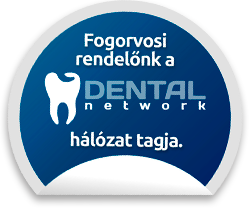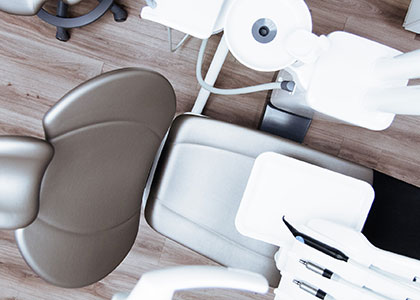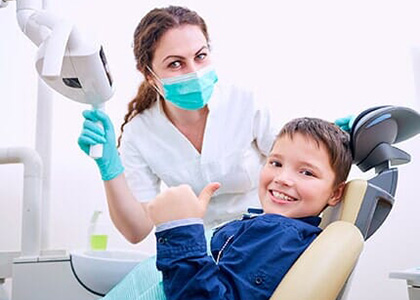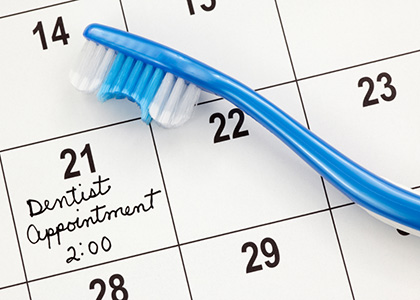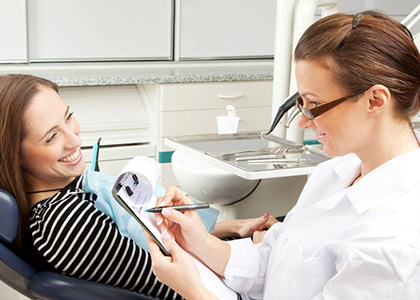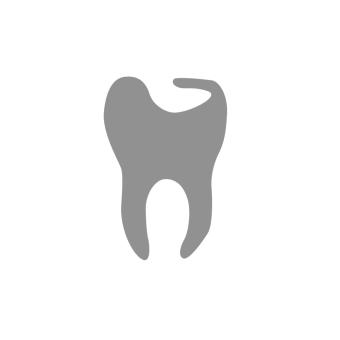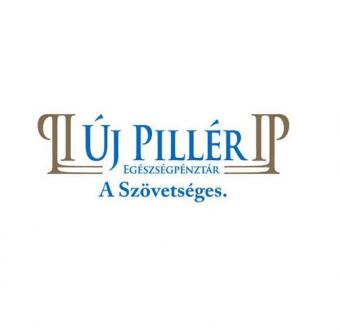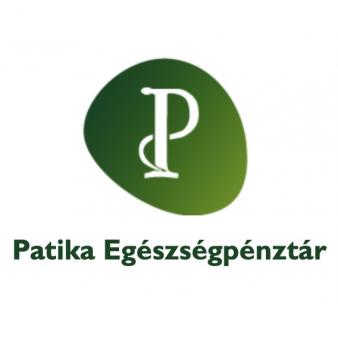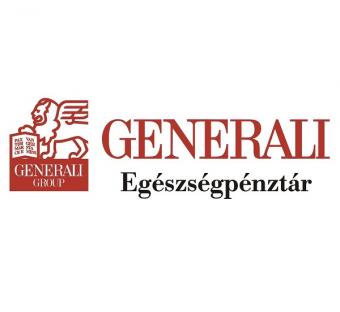Periodontology is a discipline dealing with periodontal diseases and diseases of the supporting tissues around the tooth. In the oral cavity, plaque is formed daily, which is deposited in the interdental spaces and along the gums, and after its long existence, it causes tissue damage and destruction.
About parodontium disease and loosening of teeth
Parodontium- diseases of the gums, bones, and endothelium- therefore cause its destruction and thus the loosening and falling out of the tooth. As a consequence of chronic inflammation of the gums, it can develop as a result of the breakdown, atrophy and retraction of the bone around the tooth. As a symptom we can experience not only dentition, but also the tilting, wandering and protrusion of the teeth. This problem develops in old age as a result of the natural physiological process, but unfortunately - not infrequently - it also occurs in younger age.
Dentition can also be detected by X-ray, but the bigger problem is when the loosening of the teeth can already be detected by physical examination. Thus, bone degradation can be checked, because even in milder cases, the dentist can use a probe to measure the extent of bone loss between the gums and the tooth. This is called pouch depth measurement. The sachet can form between the tooth and the gums because there is no proper bone base, so bacteria that get in there with plaque and saliva can cause inflammation and break down the bone even more. The consequence is tooth decay and then tooth loss. The sachets should be cleaned regularly by the dentist, so it is also important that dentures are made and checked by a trusted dentist.
Teeth railing
In case of teeth loosing, you don't have to think about the worst right away, as it is still possible to fix the loose teeth. One solution is to „rail” existing teeth. This means that the teeth are included in some fixed unit, and this unit also fixes the loose teeth. If some of the teeth are loose, they, as well as the adjacent, not yet loose teeth, will be grinded down by the dentist and fixed together with crowns. In this case, of course, even more emphasis should be placed on brushing your teeth, cleaning them thoroughly - but this will allow your teeth to stay in your mouth for many years more.
Periodontal treatments
Parodontium disease is not a reversible process, however, it is possible to stop bone loss and inflammation. As a preparatory treatment, ultrasonic tartar removal is usually performed both above and below the gums. The tartar above the gums is done primarily with an ultrasonic depurator, while the calculus under the gums is removed mainly with hand instruments, a procedure called curettage. Under closed curettage, subcutaneous cleansing is performed, in which the inflamed tissues, sac wall, and infected root cement layer are removed with a special tool. During open curettage, deep, hard-to-reach pouches are cleaned and root surfaces are smoothed. Incisions need to be made in the gums on the outside and inside of the tooth to form a lobe for better visibility and more effective cleaning of the areas under the gums. Finally, the surgical area is sutured at the end of the procedure. Curettage is performed under local anesthesia, so the procedure is painless for the patient.
It is often the case that someone visits to the dentist with such a large amount of caries that the boundary of the prepared cavity or crown falls deep under the gums. Instead of tooth extraction, it is now possible to save these teeth by having the tooth slightly lifted from the gum by the dentist, as a result of which the crown portion is lengthened and the tooth can be safely restored. Crown extension can be done in two ways: with a few weeks of orthodontics, as a result of which the given tooth can be lifted up by supporting it on adjacent teeth. The other option is local small surgery when the gum around the tooth is operated down.
About oral mucosal problems
A significant proportion of oral inflammations can be prevented with thorough oral and dental care. Existing oral inflammations can be treated with antibiotics according to the type of inflammation, and the medication can be supplemented with local, disinfectant brushes and mouthwashes. In its treatment, mainly topical treatment can be considered, for which several antiseptic mouthwashes are suitable. During treatment, dentists try to rid the mouth of the infected epithelium, but this can of course only happen step by step.
However, it is very important to visit your dentist if you experience non-transient pain, unusual changes in shape, size or color in your mouth, as there are more severe oral diseases -alongside apthae and thrush- such as oral tumors or cancer. Only early detection of the disease allows the patient to recover, a basic requirement for which is to participate in regular follow-up examinations.
